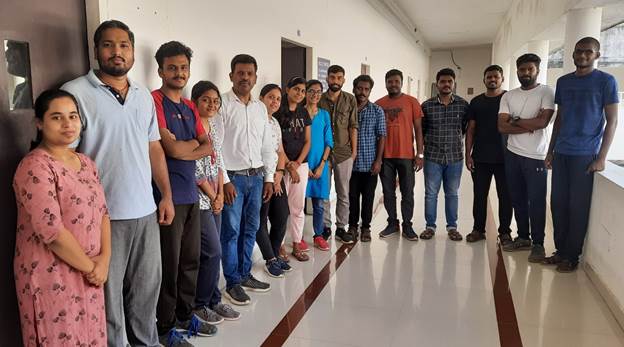Innovative Method for Hydrogen Generation from Methanol and Paraformaldehyde
Key Ideas
- Researchers in India have developed a novel method using methanol and paraformaldehyde to produce hydrogen gas, offering a promising solution for sustainable energy.
- The catalytic system developed by Prof. Ekambaram Balaraman at IISER Tirupati enables efficient hydrogen generation without the need for bases or activators.
- This research contributes to the advancement of a 'Hydrogen economy' and opens doors for COx-free hydrogen production, addressing global energy challenges.
- The ability to utilize methanol and paraformaldehyde as hydrogen carriers presents significant potential for enhancing chemical synthesis and sustainable energy solutions.
Researchers in India have made significant progress in the field of hydrogen generation by developing an innovative synthetic method that utilizes a mixture of methanol and paraformaldehyde under mild conditions. This method, proven effective for the transfer hydrogenation of alkynes to alkenes, offers a promising approach towards utilizing hydrogen as an energy carrier. The study, led by Prof. Ekambaram Balaraman at IISER Tirupati, leveraged nickel catalysts to produce hydrogen without the need for additional bases or activators. The catalytic system demonstrated high efficiency and was successfully applied in the partial transfer hydrogenation of alkynes, leading to the creation of valuable bioactive molecules. Supported by ANRF, the research aims to contribute to the development of a 'Hydrogen economy' by providing a COx-free hydrogen generation method. By utilizing methanol and paraformaldehyde as carriers, this research aims to address the challenges associated with global energy demands, offering a sustainable and renewable energy solution. This breakthrough marks a significant advancement in the quest for sustainable energy sources and highlights the potential of chemical synthesis in contributing to a more sustainable future.
Topics
Training
Sustainability
Research
Energy
Renewable Resources
Chemistry
Catalysis
Academic
Bioactive Molecules
Latest News
